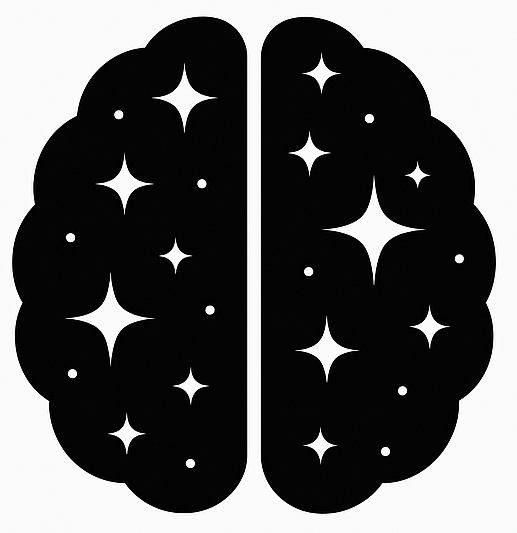You’re tired all the time.
Everything feels heavy.
The things you used to enjoy barely register.
Even getting out of bed feels like a major decision.
You’re not just “in a rut” — you’re stuck in something deeper.
If you’re neurodivergent — living with ADHD, autism, BPD, or a combination — you might know this feeling all too well.
But what you may not know is this:
Depression in neurodivergent people can look different.
And because of that, it’s often missed, minimized, or blamed on “laziness” or “lack of motivation.”
🧠 How Depression Shows Up in Neurodivergent People
For many neurodivergent folks, depression isn’t just about sadness or crying. It can show up as:
- Executive dysfunction — you know what to do but can’t do it
- Shutdowns — your brain and body go offline to survive the overwhelm
- Emotional numbness — everything feels flat, even the stuff you love
- Increased masking — pretending you’re okay when you’re falling apart
- Overstimulation or sensory burnout — even sounds, lights, or textures feel unbearable
- Hyperfixation or total withdrawal — deep-diving into distractions or retreating completely
- Fatigue that sleep doesn’t fix
- Shame spirals and internalized failure
And perhaps most painfully:
You may know this isn’t you at your best — but you can’t seem to do anything about it.
🔄 Why It’s So Easy to Get Stuck
Depression isn’t just about brain chemistry — it’s about capacity.
And when you’re neurodivergent, your capacity is often underestimated by others and pushed past by yourself.
The world wasn’t built for your brain. So you adapt. Mask. Overcompensate. Try harder.
Until one day… you can’t.
You hit a wall.
And the wall doesn’t move.
😔 But I Don’t “Look” Depressed…
So many ND folks struggle with invisible depression because they’ve been praised for their intelligence, creativity, or independence. They’re high-achieving on the outside and absolutely unraveling on the inside.
You might:
- Keep showing up at work but cry the second you’re alone
- Still smile, still reply, still perform — until you collapse
- Be so used to burnout that you don’t realize you’re in it (again)
High masking = high misdiagnosis.
Depression becomes just another “motivation problem” or “you need to be more consistent.”
Which only adds to the shame.
💡 What Can Actually Help?
1. Ditch the “shoulds.”
You should feel better by now. You should be more productive. You should just push through.
Nope. Not helpful. Give yourself permission to focus on what’s real, not what’s expected.
2. Recognize burnout as depression’s twin.
Chronic masking, sensory overload, and emotional suppression lead to burnout — and burnout can look just like depression (and make it worse).
3. Start micro. Like… really micro.
Can you sit up? Sip water? Move to a new room? That counts. Healing starts at the smallest level when your body and brain are in shutdown mode.
4. Let yourself feel — without judgment.
You’re not “too sensitive.” You’re not “dramatic.” You’re a deeply feeling human whose brain and nervous system are on overload.
5. Seek ND-affirming support.
You need someone who understands that this isn’t just sadness — it’s a full-body, full-brain overload that doesn’t respond to platitudes or productivity hacks.
🫶 You Are Not Broken. You Are Tired. And You Deserve Relief.
You’re not lazy.
You’re not weak.
You’re not defective.
You’re carrying more than people can see — and probably have been for a long time.
It’s okay to ask for help.
It’s okay to rest.
It’s okay to stop pretending you’re fine.
I work with neurodivergent individuals facing burnout, depression, and emotional exhaustion. You deserve support that doesn’t just treat symptoms — but actually understands your wiring. Contact me at: [email protected] or by phone at: 828-489-9195

